ECONOMICS MAJOR
An unknown author once wrote: "Economics is the only field in which two people can get a Nobel Prize for saying exactly the opposite thing."
How can that be? Well, economics is the study of making choices. What resources does an individual, a company or a society use in light of social values and needs. Or in light of the scarcity of resources.
One of the principal reasons to study economics is that it develops a method of thinking and analysis that can be directly applied in many different fields.
At Parkside you learn the principles and methods of economics and their application to real-world problems.
Economics provides a fundamental background for work in business, law, social science, and politics. Economics majors and minors develop skills to problem solve and analyze economic phenomena and make proficient economic decisions.
In addition to core principles and theory, the Economics Department teaches a wide range of advanced courses in various sub-fields of economics including industrial organization, international, public, and sports economics, and money and banking.
There are two concentrations offered as well as the General Economics major track.
Monetary and Financial Economics Concentration (21 credits)
The monetary and financial economics concentration is designed for students who are interested in professional positions in the financial and banking sectors.
Quantitative Concentration (23 credits)
The quantitative concentration is strongly recommended for students who expect to study economics in graduate school or seek a career using quantitative methods.
Learning in Action
Economics students are in high demand for professional internships with major corporations and businesses of all sizes. You can also participate in faculty research as an undergraduate student. Not many programs offer that exciting opportunity.
Not only do economics students learn from top faculty, they also benefit from visiting scholars and guest speakers in the classroom and during special events by the department, college, and the Economics Club student organization.
Gain real-world experience through the Ralph Jaeschke Solutions for Economic Growth Center (SEG), a campus partnership with area businesses and nonprofit organizations. Under the direction of faculty, students help solve business challenges, allowing them to expand upon what they learn in the classroom. The work provides a cost-effective solution for medium and small-sized organizations.
Within SEG are specialty centers:
- Information Technology Practice Center
- Operations Management Specialty Center
- and Accounting and Finance Specialty Center
It's difficult to learn from a textbook how business is conducted outside of the U.S. The Global Education Center (GEC) evolved as a means to:
- provide students with first-hand experience through international study
- bring international experts and scholars to campus
- provide faculty members with opportunities to study abroad
- and recruit international students to Parkside.
The Economics Department participates in the College Fed Challenge, a national economics competition sponsored by the Federal Reserve Bank.
Through the Center for Economic Education, the department provides quality curriculum materials and professional development programs to K-12 teachers that enable them to more effectively teach finance and economics.
Careers after Parkside
As an economic major you can find success in a diverse field of careers. The most common are various business roles, but you can also pursue careers in government, law, medicine, international relations and academia.
Career Options
- Actuaries
- Budget Analysts
- Market Research Analysts
- Political Scientists*
- Survey Researchers*
- Urban and Regional Planners*
*Master's degree may be required.
Studies After Parkside
The economics program provides an excellent foundation for graduate work in business, law, or the social sciences. The quantitative concentration in the economics major is designed particularly for students who expect to study economics or related fields in graduate school. Recent economics graduates have been accepted into graduate programs at the University of Georgia, George Washington University, the University of Oregon, the University of Wisconsin-Milwaukee, and the University of Wisconsin-Madison.
Michael Haedt ('10) joined the Internal Revenue Service in 2010 shortly after earning his economics major from Parkside. Haedt says his job of revenue officer isn't always popular, since it could mean shutting down a business when tax liabilities exceed the ability to pay. "An economics degree gives me an analytical view," he said. "I have to make these decisions every day on whether a business on the margin can turn it around." Haedt saluted his professors for his success: "They guided me from step one. They were amazing; willing to tutor in the evenings if I needed additional help."
PROGRAM CONTACT INFO
Dennis Kaufman | 262-595-2314 | economics@uwp.edu



